Europe creates 29.1 million tons of plastic waste from consumers every year (European Commission, 2018). A significant portion of this comes from the food packaging we use every day. Retailers and producers are currently mainly trying to reduce the amount of material needed for packaging and to focus fully on recycling. However, a significant part of the food packaging on the market is still not recyclable. Therefore, within this master's thesis project, opportunities were sought in the circular economy for the reuse of food packaging in the supermarket.
-
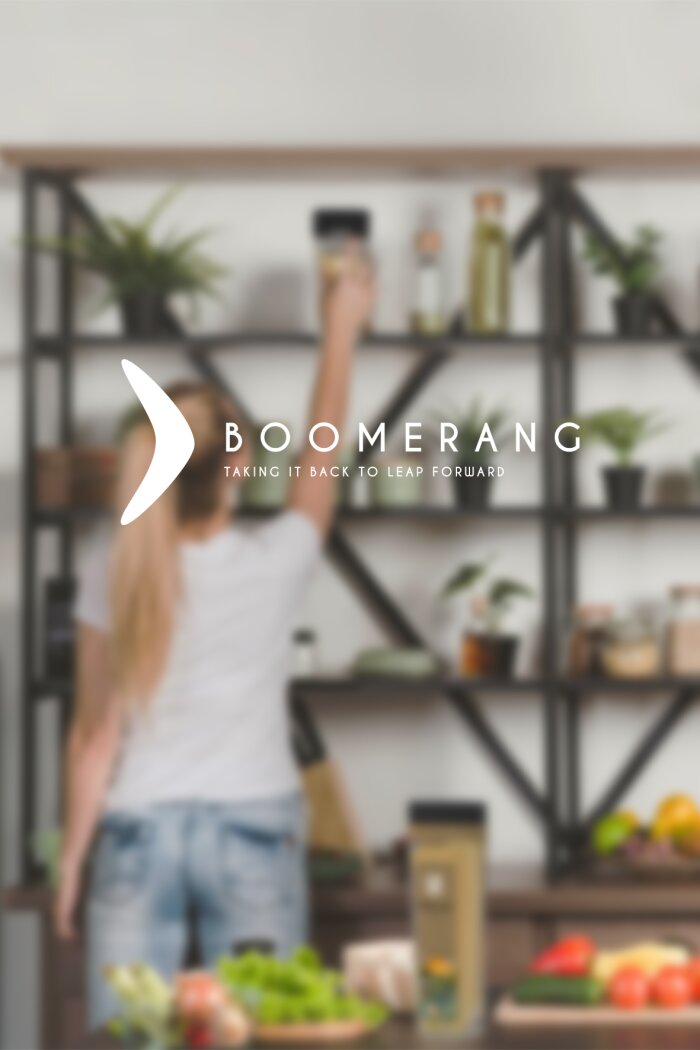 Boomerang
Boomerang -
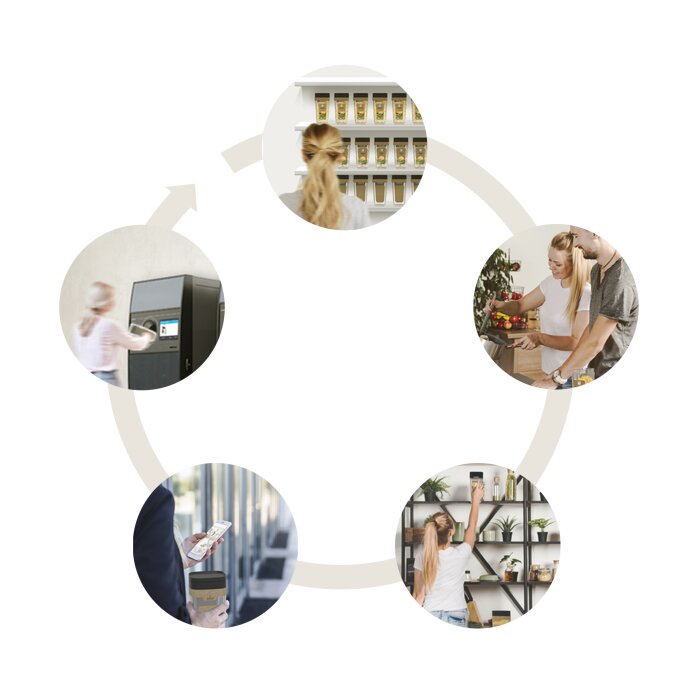 Boomerang
Boomerang
The result is a system design consisting of reusable packaging for dry foods such as pasta, rice and grains, supplemented with a consumer application and an underlying operating process.
Boomerang tries to explore the possibilities of reusable packaging for food in the supermarket from a systemic perspective. A partnership is initiated between retailer and consumer to close the materials cycle. The retailer is responsible for providing the reusable packaging, cleaning and refilling, while the consumer is responsible for use and return.
To stimulate the use of this reuse system from a consumer perspective, an application was designed that is part of the user experience. The management of deposits and notifications to remind you of the return of the packaging is made accessible and simple. Furthermore, the user is encouraged to use the system on the basis of rewards, targets and feedback on the number of disposable packaging saved. Implementing these stimuli creates consumption habits and system loyalty.
-
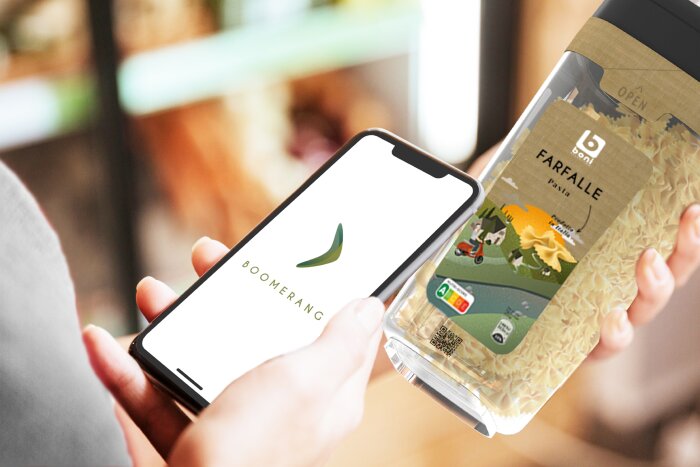 Boomerang
Boomerang -
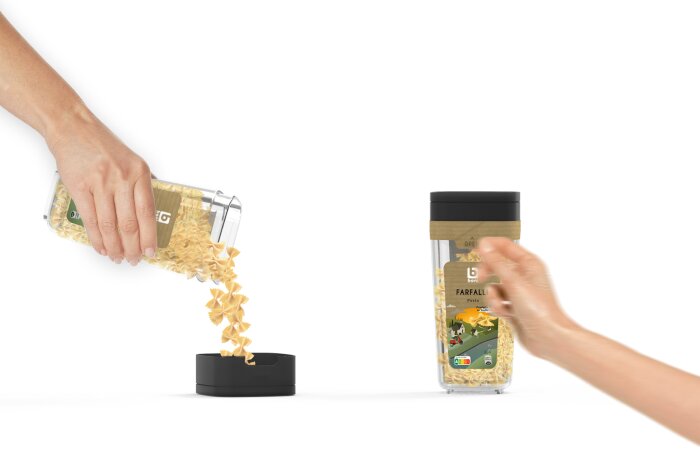 Boomerang
Boomerang -
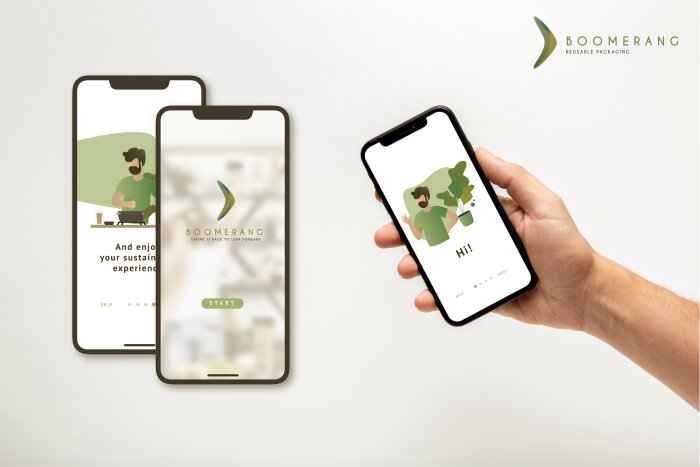 Boomerang
Boomerang